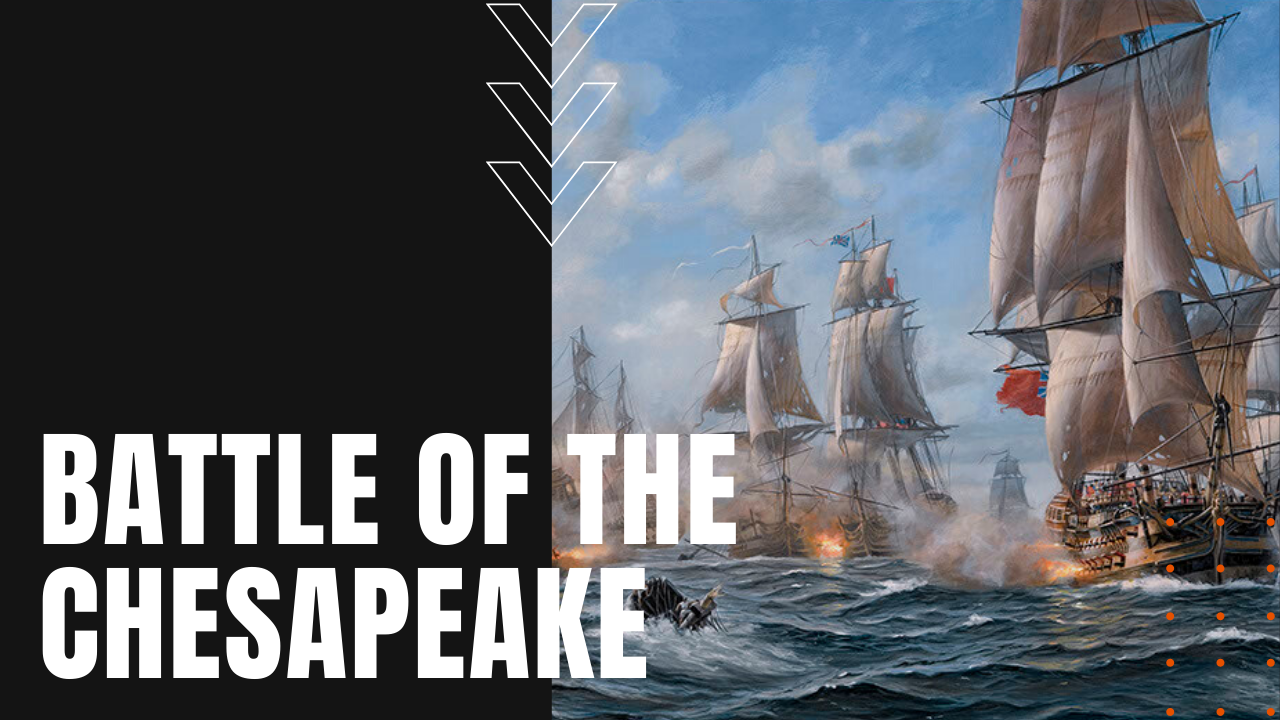Battle of the Chesapeake

Following British victories at the Siege of Charleston and the Battle of Guilford Court House, British forces under General Charles Cornwallis headed north in the summer of 1781, with the goal of reinforcing Major General Henry Clinton’s army in New York, who were then under threat by American forces led by General George Washington.
In response to a series of confusing orders from Clinton, requesting Cornwallis to establish a fortified deep-water port near the mouth of the Chesapeake, Cornwallis moved his forces to the coastal city of Yorktown, which soon made control of the Chesapeake an essential objective for the Americans and their French allies.
The Battle of the Chesapeake
Known as the Battle of the Chesapeake or the Battle of the Virginia Capes, when British Rear-Admiral Sir Thomas Graves received intelligence that a Franco-American naval fleet led by Rear Admiral Comte de Grasse had sailed from the West Indies and up the mouth of the Chesapeake—purportedly to join forces with French Admiral Comte de Barras who was then sailing south from Newport—on September 5th, 1781, Graves’ 19 ships of the line caught de Grasse’s 24 ships at anchor in the bay.
In response, de Grasse hastily prepared his fleet for battle, sailing out to face off with the opposing enemy line. Conventional naval tactics of the day called for the fleets to form up in battle lines within canon range—each ship attacking a single opposing vessel in the enemy’s line—and after hours of maneuvering, the forward and center lines came together for a two-hour engagement that would prove victorious for the French. While the two fleets would shadow each other for days to come, the battle itself saw 220 French casualties with two ships damaged, while the British saw 336 casualties, five ships damaged and one ship scuttled.
Who Won the Battle of Chesapeake Bay?
The battle of the Chesapeake, won by the Franco-Americans, proved to be a strategically decisive win for the Americans, preventing the Royal Navy from reinforcing or evacuating Cornwallis and his men during the Siege of Yorktown that followed, delivering a one-two punch to the British, which in turn brought an end to the American Revolutionary War.
